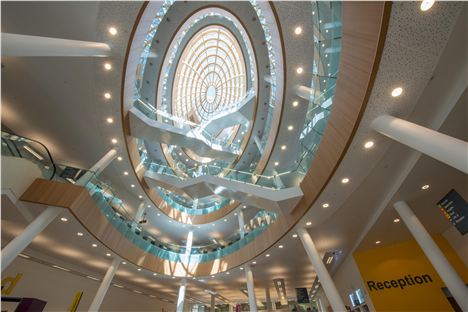IT is looking like the final chapter for more than half of Liverpool’s libraries with the publication today of list of those doomed for closure, turning north Liverpool into a literary desert.
For months it has been something of a page-turner as Mayor Anderson and councillors grappled with a slashed budget for the city. It was known some – but not how many – libraries would go.
So here is a list of those earmarked for closure: Breck Road, Dovecot, Fazakerley, Kensington, Lee Valley, Old Swan, Sefton Park, Spellow. Walton, Wavertree, West Derby.
Their fate awaits a meeting of the council cabinet next Friday (August 15).
The fact more than half are closing will come as a shock, and a bitter blow to many communities.
Mayor Anderson told Liverpool Confidential it will still leave a library no further than a maximum two miles from any household or workplace in the city.
The city council will continue to operate seven community libraries - Croxteth, Norris Green, Toxteth, Childwall, Allerton, Garston and Parklands (Speke), as well as the flagship Central Library in William Brown Street.
The Home Library Service, for mobility impaired and socially isolated residents, will also continue. Also saved will be the RNIB Talking Book Service (audiobooks for the blind and visually impaired) retained and the all year round Read Liverpool online e-library service, currently used by 7,000 subscribers.
It seems borth Liverpool, which includes some of the UK’s most socially deprived communities, will become book-free zone for many, with not a single library close by.
It seems libraries in those communities are among the least used, which could, of course, mean that are the most important if the social barometer is to change for the better.
The cabinet report doesn’t say for certain all 11 will close. It will depend on whether alternative and viable ways of delivering services from the buildings can be found.
The city’s Library Service needs to reduce its budget by £1.7m (25 per cent) as part of the city council’s £156m of savings needed over the next three years due to cuts in Central Government funding.
The scale of the challenge resulted in a two month public consultation which addressed the issues of remodelling the service and looked at how the city’s 19 public libraries were used by customers.
They are at risk because of a number of factors including below average use, high running costs, their proximity to another library and the potential of the service being provided by another organisation or group.
If the report is approved, another full consultation exercise will be undertaken which will include a series of public meetings, inviting people to have their say on the proposed service as a whole as well as those venues which have been identified as potentially at risk.
Assistant Mayor and Cabinet Member responsible for libraries, Councillor Wendy Simon, said: “It’s important to stress that it isn’t a foregone conclusion that the libraries identified will close – we are carrying out a further four week consultation to make sure all options are considered and that it has been a fully comprehensive review of the service as a whole.”
Liverpool’s main opposition party, the Green Party, described the proposals as disappointing.
Green Party Councillor Tom Crone, a leading campaigner to save Sefton Park Library, in his ward, said: “Closing so many libraries is a disaster for the city. Local libraries are an important resource for the young, the old and disabled people who find it hard to travel into the centre of town and maybe cannot afford internet access at home. Green Party Councillors call on the Mayor to reverse these cuts by dipping into the Mayor’s Discretionary Funds and keep this important service open.”
Further reading: Why Liverpool's libraries musn't crumble
All eyes on Central Library
 Most people use Central Library
Most people use Central Library
- 45 per cent of customers use Central Library, and 40 per cent of those consulted said they would use this library if their local library closed.
- The most-used libraries are Central Library, Allerton, Childwall, Garston and Norris Green. Together these libraries account for 57 per cent of the total library use across the city.
- 59 per cent of respondents said they would be willing to visit another library if their local one was to close.










